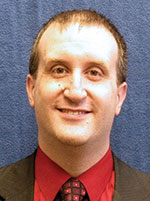Worship and Evangelization Outreach / Andrew Motyka
Praying for the dead is one of the most loving things we can do
 As Catholics, we have a long tradition of praying for the dead. All of us have lost loved ones, and one of the most loving acts we can perform for our loved ones is to pray for them when they have died.
As Catholics, we have a long tradition of praying for the dead. All of us have lost loved ones, and one of the most loving acts we can perform for our loved ones is to pray for them when they have died.
It is a difficult prospect to many of us in the modern age because praying for the dead means we have to think about death, and even about our own death. This is scary, and we often just ignore it. However, because we have a path through Jesus to eternal life in him, we should not be afraid, but should love the purification he offers us.
Anyone who has attended a Catholic funeral has probably heard the reading from the Book of Wisdom, “The souls of the just are in the hand of God …” (Wis 3:1). It is a beautiful articulation of God’s love for those who follow him.
A puzzling phrase in that reading, and one very appropriate to funerals, is, “As gold in the furnace he proved them, and as sacrificial offerings he took them to himself” (Wis 3:6).
Of course, we want to think of the dead as being in the hand of God, but what does it mean for them to be “proved?” Proved, in this case, means purified. Gold is purified by heating it up, which burns away the impurities in the metal.
God provides a way for us to be purified of our remaining imperfections before we enter into his presence. Our prayers are for this purification to be accomplished in those who have already died.
We often want funerals to be a “celebration of life,” which is understandable, but secondary to being an act of thanksgiving to God (as every Mass is). Funerals bring us together to pray for the dead. The perfect act of prayer is, of course, the offering of the Mass.
Likewise, in the month of November we turn to pray for the dead in general. This begins with the Commemoration of All the Faithful Departed (All Souls Day) on
Nov. 2 and is a practice that continues throughout November. We offer prayers, especially Mass, for all the dead throughout the month. Celebrating a Mass for the dead often makes us think about our own mortality, and that is good. We should always be aware of our inevitable death and should adopt prayers for others with urgency.
Any Mass for the dead, whether a funeral or a general Mass, is sometimes called a Requiem Mass. Like Mass on Gaudete Sunday in Advent or Laetare Sunday in Lent, the Requiem Mass is named after the first word of the Entrance Antiphon, in this case Requiem aeternam: “Grant them eternal rest, O Lord, and let perpetual light shine upon them.”
This fall, we will be offering two special choral Requiem Masses in November. Vox Sacra, the schola cantorum of the Archdiocese of Indianapolis, will be leading music for the Requiem as composed by Maurice Duruflé. These choral Masses, which include orchestra, will be full celebrations of Mass and celebrated at 2 p.m. on Nov. 6 in the Bishop Chartrand Memorial
Chapel at Marian University in Indianapolis, and at 7 p.m. on Nov. 18 at St. Malachy Church in Brownsburg. All are invited to these special celebrations to pray for the dead, an act of charity and related to the corporal works of mercy.
For more information, please visit www.voxsacra.com/requiem.
(Andrew Motyka works in the Office of Worship as the director of Archdiocesan and Cathedral Liturgical Music for the Archdiocese of Indianapolis. He can be reached at amotyka@archindy.org.) †
 As Catholics, we have a long tradition of praying for the dead. All of us have lost loved ones, and one of the most loving acts we can perform for our loved ones is to pray for them when they have died.
As Catholics, we have a long tradition of praying for the dead. All of us have lost loved ones, and one of the most loving acts we can perform for our loved ones is to pray for them when they have died.